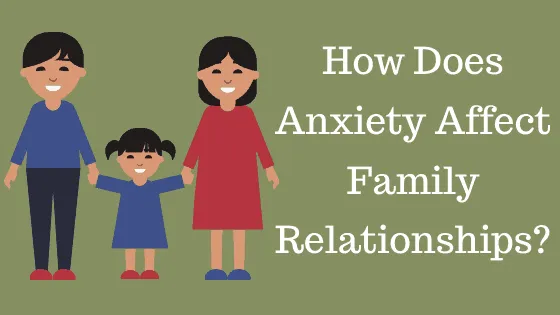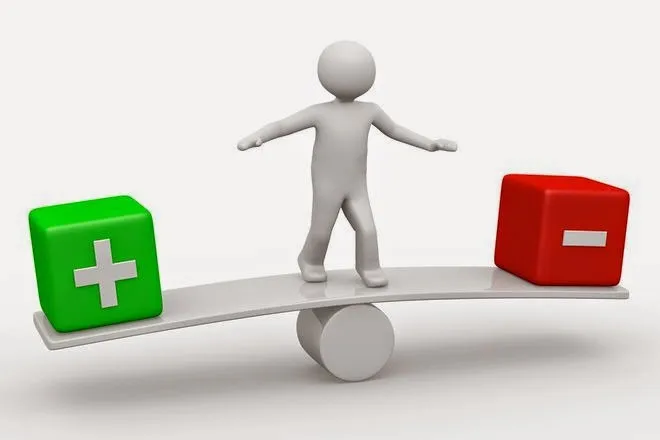How To Help A Family Member Through A Stressful Life Situation
Stress is an undeniable fact that plays a crucial role in our life, an unavoidable reality we have to accept if we want to live our lives meaningfully. It is a normal part of our lives, we deal with it every day.
According to the NIMH National Insitute of Mental Health, stress is the way our body reacts to any demands. It comes in many different forms, amounts, and situations.
People experience stress differently from one another. Stress may be triggered by small events, like traffic jams, a long line at the store, or it can be the outcome of a crisis or big change in life like the death of a loved one, divorce, the pandemic, etc.
"The greatest weapon against stress is our ability to choose one thought over another." - William James.
What matters is how we deal with it, the first step to handle stress is to recognize it, accept and manage it to avoid negative life consequences, which can be physical, or psychological.
Stress that is not dealt with or managed can develop into chronic stress, which can harm our immune system, increase blood pressure, and aggravate already existing mental disorders like anxiety and depression.
Nevertheless, stress can help us in dangerous situations by increasing our awareness to act quickly, without which people won't survive.
Stress cannot be avoided considering how many demands our life has, asking for our time, attention, and energy. But by developing good stress management skills, we can handle stress for the better, healthily, and creatively.
You should start by looking and analyzing yourself, trying to understand your reaction to it, and proceed with adapting and modifying stress management techniques to ensure your stress in life will not cause severe problems, and actually, a little bit of stress can help you develop your full potential.
How does anxiety affect family relationships?

According to Dr. Kendal Genre, M.D., Psychiatrist at Ochsner Medical Center, an anxiety disorder can affect families and friends in several ways. Symptoms like irritability, tension, lack of concentration, poor sleep quality, can directly affect interpersonal relationships among family members and the ability to accomplish your work effectively.
People who suffer from panic disorder avoid things because they fear it might cause them a panic attack. There are cases when driving, for example, causes fear and such people have circumscribed their abilities to interact in family and society in such a way that they are affected just like the person who has the panic disorder. We must also take into consideration that anxiety disorders may be comorbid with other mental disorders, like depression, psychosis, or drug abuse.
As per the research conducted by Clinical Psychologist Jonh Hunsley Ph.D., CPsych, about anxiety disorder and family, it can affect other disorders that can seriously affect relationships and functioning as an individual, family relationships, and wellbeing.
People who suffer from anxiety have excessive worrying, high-stress levels, and fear of negative past experiences. They generate irrational thinking, have to deal with overthinking, which affects a person's attitude he has towards family or society.
How to help a stressed family member

The society we are part of is stressed-out, where people are too busy, stressed, overworked, and overwhelmed, but most of our stress is self-generated. We stay in toxic work environments and relationships. After all, we are stuck on them because we think we don't have any other option.
But let's take a moment and start to think about our loved ones, who might have gone through hell, and have to deal with such a terrible time. Losing one's job, a family member, divorce, or having a serious medical issue.
Our loved ones may be stuck in a physically or emotionally abusive relationship and cannot find a way out. They may be struggling with mental illnesses. How do you help someone in need, who engender "compassion fatigue" in you and everyone around?
Here is how you can help a family member through a stressful life situation:
1. Be a good listener

It's the easiest thing to do, but it's the most important one. People don't need someone to fix them, or their situation, they need someone to understand them, listening carefully without judging. Active listening happens when you mirror your loved one's thoughts and feelings back to them, is a great thing to do to assist them to find the strength to move forward through this hard situation.
To do that you can:
- Stay calm, take a few deep breaths.
- Remove distractions like iPhone, or tv and pay attention.
- Listen to them quietly without swap stories.
- You may ask, "Why...." or "How did that feel?"
- Reflect: "So what I hear you saying is .... (Rephrase and repeat their dilemma).
2. Be kind and offer reassurance

Assure theme and don't try to give them solutions, just assure them you believe in them, and they have everything it takes to figure things out, assure them you will be there for them in case they need you.
Remind them and assure them that this will not last forever, and things can be better tomorrow. This will enable them to keep things in perspective. If they are stressed out because they are in a difficult situation financial situation, then you can assure them you offer support to come out of it.
3. Find the reasons behind their stress

If you observe someone's behavior, you can help them notice a thinking pattern that they couldn't do before. It can be a very sensitive topic because this can shift the focus into negative thinking and feelings, so stay calm, be objective, and keep a non-judgmental attitude. Simultaneously, you can assist other people to understand situations and activities to help them experience less stress and be more in control.
Look carefully to spot the triggers of their stress. Does he eat rightly or has a problem sleeping? Does he suffer from any addiction? How about the work environment, is it toxic? Try gently to point out those elements in their life that might be causing stress and help them address it and move on.
4. Help them reflect upon their past mistakes

Don't blame them, just remind them it is human to err. People tend to shift the blame of their mistakes upon others or bury them so that no one can find out. But by accepting our mistakes and correcting them, triggers the circuit in the basal ganglia of our brains which enables high learning and neuroprotective mode.
All this, learning from our mistakes, getting up early, giving ourselves another chance, not giving up, improves our intelligence, state of happiness, and sense of achievement in life. Staying inactive is not a very good option to learn and develop yourself as a person. Remind your loved ones to focus on the process of becoming, not on the result of their present situation.
5. Help them stay in the present

When we feel an intense amount of anguish, the first thing we hear is "calm down" or "relax" but this may be impossible because anxiety makes us unable to see or think of a way out.
Anxiety is triggered when we perceive a threat, and that perception, accurate or not, causes a release of adrenaline. It activates the sympathetic nervous system, an age-old way to get us to flee from danger. We sweat, and our mouth gets dry to preserve moisture. Any activity that requires blood or energy shuts down, so we get cold feet and tingling fingers.
Such feelings are real and don't try to underestimate them. On the contrary, help your loved one reconnect with the present moment. You can start doing this by asking them to close their eyes and focus on their body. Be mindful, observe whatever is happening around them, feel the touch of the ground, feel the wind to calm themselves. It's your duty to help them reframe their mindset and focus on self-care.
6. Get them moving and make them exercise

Ask them to apply breathing techniques to reduce anxiety. It activates the parasympathetic nerve system, which balances the sympathetic nervous system and makes us calm down.
Offer them water, to ease the upset stomach and the feeling of dry mouth. Then, get active, go for a walk or run. Because anxiety has that motivational piece of wanting to run away, behaviorally walking forward is the exact opposite. Moving forward something shows you have nothing to fear.
7. Help them find a new perspective

When anxiety thoughts are rattling inside our heads we see everything gloomy and lose hope there is no way out, we don't see the light at the end of the tunnel. It is very easy to get lost and overwhelmed.
However, if we start naming our worries, it can bring some necessary clarity. Turn on the light for your loved ones and ask them to express what they fear If those negative thoughts come out of their heads into the light, then they become less scary and less believable.
8. Help them move on by asking them "And then what"

When we understand our fears, we can predict the worst-case scenario. Maybe they are worried about a job meeting. Ask them "and then what?" They may be afraid of being criticized, "and then what?" They think they may lose their job, income, and end up in the street. By taking them through these steps it sheds light upon how remote their fears are.
When people are anxious, they often go well beyond the evidence in front of them - they go from layoffs to a dumpster." Speaking out about the worst-case scenario fears enables us to neutralize them.
9. Bring positivity into the balance

People tend to focus on the negative life events, rather than on the positive ones - but this keeps us in alertness, survival mode. We must be mindful and bring more positivity to our lives. So whenever your loved one can find a place of refuge to calm down, help them change their focus from the negative to the positive.
Remind them of three things they are grateful for in life, it can be anything. Ask them to write it down, it will be much better for them. Furthermore, to help your loved one deal with future anxiety remind them there are innumerable things to be grateful for in life. This practice not only reduces stress, but it benefits a range of from better sleep quality to better self-esteem.
Emily's personal experience, helping a family member through a stressful life situation:
"She looked at me, held my hand, and told me she needed me. That I mattered."
A couple of years ago, a friend of mine started to have mental health problems, and because I couldn't help her, my life and situation got worse. I isolated myself because that experience made me feel worthless.
When I reached the bottom, my friend came to me, looking at me, holding my hand and telling me she needed me, that I mattered. Such a small gesture made all the difference to get me off the floor and regain my life.
With baby steps and the right support, I could enter society and get my life back. I wasn't living for my friend, but she reminded me that there are people who need me and be part of their lives.
Such emotional support and being with me in my worst condition, helped me get back from my depression state. I felt silly at first because she saved me when I wanted to save her.
But after receiving support from other people as well, and recovering, I realized I can be and am the person who is part of her life. I don't need someone else to approve and accept me to feel worthy.
This changed the way I saw my friend and myself. Now we both have recovered ourselves, and don't depend upon one another to survive, although we support each other, but without standing on the other.
Final thoughts
Although stress and anxiety are part of our life, including the workplace and personal life, there are many simple ways to deal with stress and the pressures that you and your loved ones go through. Stressful situations are part of our life, they test our strength and resilience. Whatever it can be, you can think through the situation, accept the emotions you feel, and always keep a positive attitude.
Focus all your efforts on what you can make better, ask for help, take care of your loved ones and yourself as well. It can be the most important thing for your loved ones. It can be hard and devastating trying to support someone who has gone through a very difficult experience or is under a very stressful situation. It can impact your well-being as well.
But keep in mind that you cannot solve your loved one's problems by making them your owns, this will only damage you by making a less effective support person. It is of great importance to ask for help from other loved ones or the community, like for example a counselor, or a support group.
References:
- William James quoted in BrainyQuote. "The greatest weapon against stress is our ability to choose one thought over the other."https://www.brainyquote.com/quotes/william_james_385478
Additional References:
- Baskin, Kara. How to support someone stressed. meQuilibrium. n.d. https://www.mequilibrium.com/resources/how-do-i-help-a-stressed-friend-or-loved-one/
- CABA Team. 7 ways to support someone who is stressed. CABA. n.d. https://www.caba.org.uk/help-and-guides/information/7-ways-support-someone-who-stressed
- Genre, Kendall, M.D. Psychiatrist, Ochsner Medical Center. What is the impact of an anxiety disorder on one's family and friends? ABC news. April 16, 2008. https://abcnews.go.com/Health/AnxietyLiving/story?id=4665198
- Healthline Editorial Team. Medically reviewed by Timothy J. Legg, Ph.D., Preventing Stress. Healthline. Updated on December 28, 2017. https://www.healthline.com/health/stress-prevention
- Jennings, Kerri-Ann. 16 simple ways to relieve stressed anxiety. Healthline. August 28, 2018. https://www.healthline.com/nutrition/16-ways-relieve-stress-anxiety#The-bottom-line
- KidsHealth Medical Experts Staff. Coping With Stressful Situations. TeensHealth. n.d. https://kidshealth.org/en/teens/stress-situations.html
- Mayo Clinic Staff. Stress management: Examine your stress reaction. Mayo Clinic. July 28, 2021. https://www.mayoclinic.org/healthy-lifestyle/stress-management/in-depth/stress-management/art-20044289
- Personal Stories, Emily. Beyond Blue. n.d. https://www.beyondblue.org.au/who-does-it-affect/personal-stories/story/emily
- Phoenix Australia Staff. The support of family and friends is critical...Phoenix Australia. n.d. https://www.phoenixaustralia.org/recovery/helping-others/
- Sulack, Pete. How to help a loved one who's stressed. ˙Health U.S. News. September 9, 2016. https://health.usnews.com/health-news/patient-advice/articles/2016-09-09/how-to-help-a-loved-one-whos-stressed
- The Recovery Village. How does anxiety affect relationships? The Recovery Village. Updated on September 16, 2020. https://www.therecoveryvillage.com/mental-health/anxiety/faq/how-does-anxiety-affect-relationships/#:~:text=Anxiety%20disorders%20can%20have%20a,a%20person%20views%20their%20relationships
- Tiret, Holly and Knurek, Sean. Strategies to cope with family stress. Michigan State University. May 26, 2020. https://www.canr.msu.edu/news/strategies_to_cope_with_family_stress
Opinions and Perspectives
Teaching these coping skills to my children has been one of the most valuable things Ive done as a parent.
Weve started implementing these techniques as a family and its making a real difference in how we communicate.
The importance of maintaining boundaries while helping others really resonates with my experience.
Being there without trying to fix everything was the hardest lesson for me to learn.
These strategies have helped us create a more supportive family environment overall.
Sometimes just acknowledging the stress exists can be the first step to managing it better.
The point about chronic stress affecting immune systems is so important. Weve seen this in our family.
I wish Id known these techniques when helping my spouse through job loss last year.
Teaching my kids these coping strategies early has made such a difference in our home.
Has anyone else noticed how their stress management improved after helping others with theirs?
Im going to share this article with my family. We could all use these reminders.
The emphasis on professional help when needed is important. Sometimes we need more than family support.
Small gestures really do make a difference. Just sitting with someone can be powerful.
Its interesting how stress manifests differently in each family member. Understanding this has helped us support each other better.
The suggestion about focusing on what we can control has been really helpful for my family during uncertain times.
Helping my sister through her divorce taught me so much about these principles. Patience and presence are key.
I appreciate how the article acknowledges that different people experience stress differently. No one size fits all approach.
The article mentions self care but could have emphasized it more. We cant help others if were depleted ourselves.
These strategies really work. Weve been using them in our family for months now and see such improvement.
Ive found that creating a calm home environment helps everyone manage their stress better.
The point about toxic work environments resonates. I had to help my partner recognize when it was time to leave his job.
I think the article could have addressed workplace stress more. It often bleeds into family life.
Naming worries has worked well for my teenage daughter. It makes her anxiety feel more manageable somehow.
Anyone tried the technique of naming worries? It sounds interesting but Im not sure how to start.
The emphasis on non-judgmental listening is key. I catch myself wanting to give advice when I should just listen.
Support groups helped my family tremendously during my brothers illness. Just knowing we werent alone made a difference.
Im curious about others experiences with support groups. The article mentions them but doesnt elaborate.
The article makes a good point about asking for help. We cant do everything alone.
That tip about not trying to fix everything was hard for me to learn. I wanted to solve all my kids problems.
Ive seen firsthand how unmanaged stress can affect physical health. My mother developed high blood pressure from it.
The part about helping someone stay present reminds me of mindfulness. Its been really helpful for my family.
I appreciate how the article emphasizes supporting without taking on others problems. Thats a hard balance to find.
Those breathing techniques saved my marriage during lockdown. We both learned to pause before reacting.
The article could have addressed financial stress more specifically. Thats a huge factor for many families.
Im going to try that mirroring technique mentioned in the active listening section. Sounds really effective.
The suggestion about writing things down has been so helpful for my family. We keep a shared gratitude journal now.
My experience matches what the article says about stress affecting relationships. Communication really suffers when were stressed.
The point about asking And then what? is brilliant. It really helps put anxious thoughts into perspective.
Im surprised the article didnt mention the role of routine in managing family stress. Structure helps us a lot.
What works for my family is setting aside specific worry time. We deal with stressful topics only during those times.
The section about helping people reflect on past mistakes needs to be handled very carefully though. Timing is everything.
Ive found that helping others with their stress actually helps me manage my own better.
Yes! Its like a domino effect in my house too. Thats why these coping strategies are so important.
Anyone else notice how stress seems to ripple through the whole family? When one person is stressed, we all feel it.
The article mentions exercise but I think it understates how powerful physical activity can be for managing family stress.
That point about stress being normal really helped me stop feeling guilty about my own reactions to difficult situations.
I wish more people understood that you cant force someone to deal with their stress in your way. Everyone processes differently.
The suggestion about removing distractions during conversations is so important. Putting away phones makes such a difference.
Family therapy was a game changer for us. It helped us understand each others stress responses better.
Has anyone tried professional family therapy? The article mentions counselors but doesnt go into much detail.
The emphasis on staying in the present moment is crucial. I have seen how ruminating about the past only makes things worse.
I actually disagree with avoiding swap stories. Sometimes sharing similar experiences helped my sister feel less alone.
The article could have gone deeper into how different age groups handle stress differently. My teenagers react very differently than my parents do.
I understand what you mean about refusing help. My husband was the same way until his stress started affecting his health.
When my mom was going through chemotherapy, I applied many of these techniques. Simply being present made a huge difference.
The part about anxiety affecting family relationships really hit home. We went through this with my son last year.
I found the section about identifying stress triggers particularly helpful for helping my wife manage her work stress.
Does anyone have experience helping someone who refuses to acknowledge their stress? My father is like this.
The article makes good points about not trying to fix everything. I learned this the hard way with my teenager.
Trust me, the gratitude exercise really works. I was skeptical too but it has made a huge difference for my family.
I wonder if anyone else has tried the gratitude exercise mentioned? It seems too simple to be effective.
The personal story about Emily really touched me. Sometimes the people we try to help end up helping us instead.
Great article! I love the practical steps it provides. The And then what technique has really helped my anxiety-prone daughter.
I agree with most points but disagree that most stress is self-generated. Sometimes external circumstances are truly overwhelming.
That breathing technique suggestion works wonders. I taught it to my sister and now she uses it regularly.
Anyone else struggle with the balance between being supportive and maintaining their own mental health? I find it challenging sometimes.
The part about compassion fatigue is so real. I burned myself out trying to help everyone in my family during the pandemic.
Interesting how the article mentions stress can actually be beneficial in dangerous situations. Never thought about it that way before.
I found that helping my mom move her body when she was stressed made such a difference. We started taking evening walks together and it helped both of us.
The quote by William James really resonates with me. Our thoughts shape so much of how we experience stress.
My brother went through a tough divorce last year and I wish I had read this earlier. I kept trying to fix everything instead of just being there for him.
I really appreciate the point about active listening being crucial. Sometimes we jump too quickly to giving advice when all someone needs is to be heard.
